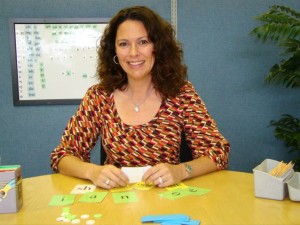
When Learning needs to be Assessed
In the children’s book Madeline, Nurse Clavel is lying in bed when she bolts upright in fright in the middle of the night and says, “Something is not right.”
She had the good sense to trust her intuition about a child in her care. Parents who suspect that something may not be right can trust their intuition and do well to follow Nurse Clavel’s example to get help.
A parent’s intuition is a reliable indicator of the existence of a learning difference or a disability, which interferes with a child’s ability to access the curriculum in school.
When a child is not doing well in school, there may be good reason for you to request an immediate assessment. Responsible parents always want to be certain the school is providing what is needed for their child to succeed in school. To know what is necessary, an assessment is the first thing to do in order to identify the issues to remedy.
What is an assessment?
An assessment is simply a standardized test performed by someone trained and licensed to understand how to give the test and how to interpret the results. The assessor will write a report. If the report indicates a need for special education services or accommodations, school staff and parents in a meeting will discuss the report’s findings.
Parents will receive notice of the meeting. It is called an IEP meeting. An Individual Education Plan designed to provide FAPE, a Free; the IEP team will design Appropriate Public Education. The document, which results from the IEP team meeting, is also called “The IEP.” The IEP is a contract between parents, who are the holders of a child’s educational rights, and the child’s school. There are many ways parents can affect an offer of FAPE, and among them is participating fully in the IEP process, and being certain that all areas of suspected disability are assessed and investigated — thoroughly, fairly and objectively.
How do you get an assessment?
You write a letter to the school and ask for one in a signed and dated letter, describing why you believe your child needs to be assessed.
Be brief, and describe what it is that makes you think an assessment should be performed. If you can, describe the possible disabilities, which prompted your writing: hearing, vision, learning difference, other health impairment, etc.
How is a learning disability remedied?
Students who have been assessed often require more educational services, accommodations, support and/or remediation than those provided to the general student population. These are called ‘special education services’ and Federal and State laws created special education as a civil right.
Are Special Education Services and Accommodations Really Special?
Imagine a pencil taped very high on the wall.
It is not within easy reach for people of average height.
People of average height must jump to reach the pencil and take it off the wall.
People who are very tall will easily extend an arm to reach the pencil and take it down.
People who are very short must stand on a chair to reach the pencil and take it down.
— That chair describes special education services and accommodations.
Here are some insights about our perceptions of those using the chair: The shortest people are no less worthy for needing the chair. The tallest people are no more worthy for not needing the chair. People are people — and some of us need the chair to reach the pencil. The chair levels the playing field.
One in five children have a learning disability, and these range from hardly noticeable to severe. With expert and targeted remedial help — and heaps of extra praise — children with learning disabilities can be taught appropriately and motivated to work extra hard to address their learning needs effectively.
How do you know whether an assessment is needed?
You look for signs and symptoms. A child with a learning disability, for example, will take in and process information differently and needs to be taught by specialists. Some people with learning differences also have another diagnosis, such as ADHD.
Effective early intervention is the key to succeeding in life! It can be a tremendous relief to you as a parent if you understand that success is not necessarily affected by learning differences if learning differences are remedied appropriately – so, the training needed must begin sooner rather than later for the best result. It is heartwarming to see the relief a child feels when their reading ability improves after struggling so long. Their self-esteem improves as their abilities improve.
Because early intervention is best, the sooner parents can identify a learning disability and complete the assessment process, the sooner a child can begin to be taught in a way that makes sense.
What method makes sense?
One that works! Forty percent of children in the United States have difficulties learning to read. Most of these children can learn to read at average grade levels if taught appropriately.
The most well-known and effective method for reading intervention is the Orton-Gillingham approach. With this approach, the teacher presents the building blocks of our language, vowels and consonants, one or two at a time, using a multisensory technique.
Here is an example of multisensory teaching: prompted by the letter ‘A’ on a flashcard, a student will say it’s name, say its sound, and ‘write’ the letter ‘A’ on their other palm using an inkless index finger. This technique uses sight, hearing, movement and touch.
Orton-Gillingham-trained teachers help students with dyslexia to progress because of the sequential, repetitive and systematic structure of the Orton-Gillingham approach. It is effective, thorough — but also slow. Unfortunately, due to the time requirements in public school classrooms, most teachers cannot incorporate this method into their daily curriculum.
But, you can’t remedy what you don’t thoroughly understand. Here are some indications that an assessment is needed for a learning disability. Other disabilities have other indications for which an assessment can be requested. See www.pridelearningcenter.com for more about learning disabilities.
- Choppy and labored reading
- Reading comprehension inconsistent with intelligence
- Words are omitted or lines of text are skipped over while reading
- Unusual spelling
- Disoriented handwriting
- Easily distracted
- Attention wanders and on-task focus disappears
- Labored writing
- Spatial disorientation
- May ignore margins completely
- May pack words or sentences too tightly on the page
- Disorganized
- Frustrated with expressive written and oral communication
- Doesn’t complete class work or homework on time
- Wrongly accused of being lazy, unmotivated, difficult or unintelligent
- Letter reversals
- Difficulty copying off the board
If, like Nurse Clavel, you find your intuition keeping you awake at night, look for indications that an assessment is needed. And get your child assessed!
About the Authors
Karina Richland, M.A. is the Founder of Pride Learning Centers, located in Los Angeles and Orange County. Ms. Richland is a reading and learning disability specialist. She speaks frequently to parents, teachers, and professionals on learning differences, and writes for several journals and publications. You can reach her by email at karina@pridelearningcenter.com
Learn more about the New PRIDE Reading Program
Nan, Waldman, Esq. is a special education and disabilities consultant in Los Angeles with 20 years of experience in the field. She is also a parent and primary caregiver of a child with disabilities, a teacher, an advocate and a lawyer. Nan Waldman, Esq. can be reached by email at n.waldman.esq@gmail.com


